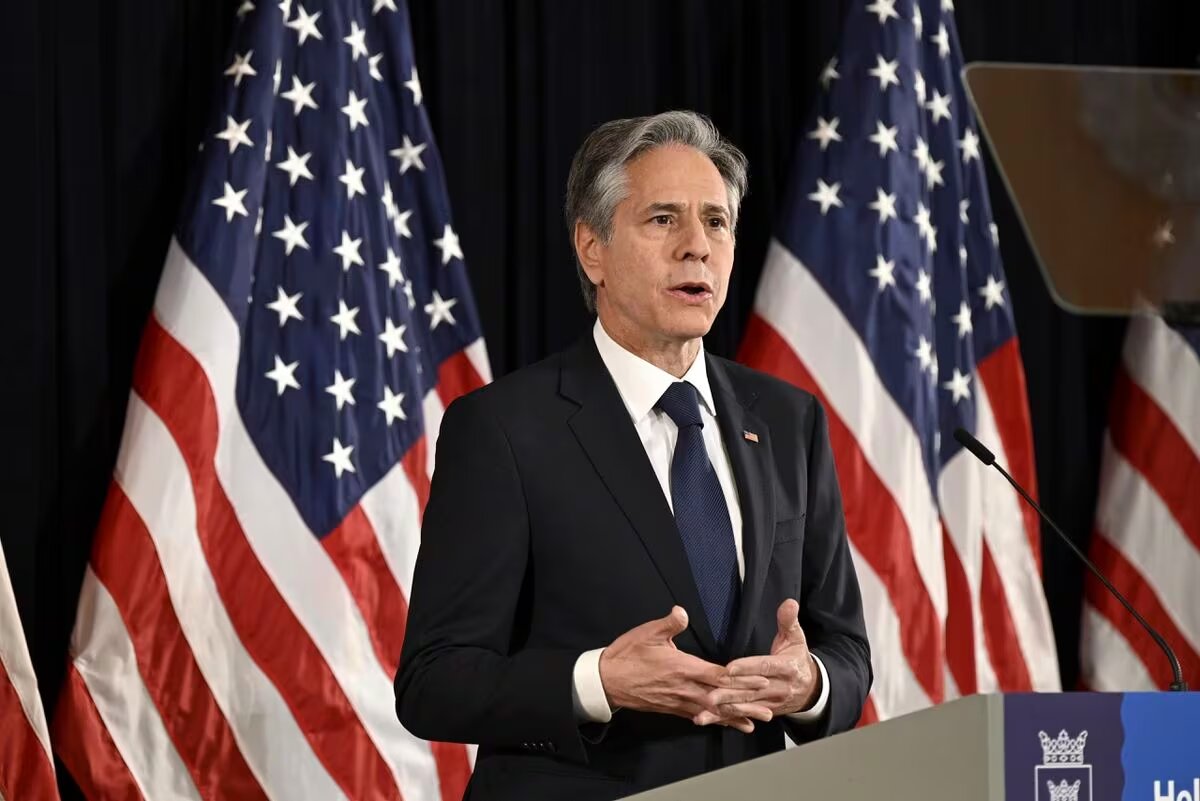As massacre in Gaza continues, U.S. sends Blinken to West Asia on a wild-goose chase

TEHRAN- U.S. Secretary of State Antony Blinken has kicked off his West Asia tour amid fears over the escalation of Israel’s war on Gaza in the wake of Washington’s warmongering policy in the region.
The top American diplomat is on his fifth visit to the region since Israel launched its brutal military campaign on Gaza on October 7.
There is "real hope" for success of the "good, strong proposal”, Blinken said in Washington on Monday after a meeting with Qatar's prime minister, Sheikh Mohammed bin Abdulrahman Al Thani.
State Department spokesperson Matthew Miller has said Blinken will focus on “diplomatic efforts to reach an agreement that secures the release of all remaining hostages and includes a humanitarian pause” in Gaza.
He is expected to discuss a proposed truce thrashed out in the French capital last month. Top U.S., Israeli, Egyptian and Qatari officials attended a meeting in Paris to draft the ceasefire.
The proposed truce would pause fighting in Gaza for an initial six weeks as Hamas frees captives in exchange for Palestinian prisoners held by Israel.
The State Department has said Blinken seeks to discuss a humanitarian pause in Gaza during his meetings with Arab and Israeli leaders. But it has fallen short of announcing whether the top U.S. diplomat will place plans on the agenda to discuss a permanent ceasefire as Israel’s brutal war on the Palestinian territory rages on.
Unsurprisingly, the U.S. has blocked all efforts at the UN Security Council aimed at reaching a permanent truce in Gaza. This policy has been in line with Washington’s all-out political support for Israel’s war on Gaza.
But the White House’s support for the regime has not been restricted to political support.
The U.S. and the UK have carried out airstrikes against Yemen over the Ansarullah movement’s military operations against Israeli-linked ships in the Red Sea. These operations have been carried out in solidarity with the Palestinians in Gaza.
Besides, the U.S. has targeted positions of resistance groups in Iraq and Syria over their attacks against American bases. These groups say they hit American military sites over Washington’s backing of Israel’s war on Gaza.
Presently, concerns are growing that the continuation of Israel’s war on Gaza and military strikes in Syria, Iraq and Yemen could push the region to the brink of abyss.
Against the backdrop of such developments in West Asia, Blinken is visiting the region.
During Blinken’s previous trips to the region following the October 7 attacks on southern Israel by Hamas, Arab leaders called on him to exert pressure on Israel to stop the massacre of the Palestinians in Gaza.
But their calls seem to have fallen on deaf ears. This is because Israel has refused to put a halt to its military campaign and is tightening the noose around the border city of Rafah.
Israel has taken a step further and ignored a recent ruling by the International Court of Justice that ordered the regime to take all measures within its power to prevent acts of genocide against the Palestinians.
Blinken’s fifth West Asia visit will not be different from his four previous tours and it seems he is in the region on a wild-goose chase as fears are also mounting that Israel may commit another act of genocide in Rafah. The city, which is close to Egypt’s border, is overcrowded with 1.9 million Gazans forced to flee their homes as a result of Israel’s strikes across the Gaza Strip. Rafah remains the last refuge for Gaza residents and they don’t have anywhere else to go to.
Some sources say Blinken will try to put pressure on Israeli Prime Minister Benjamin Netanyahu to accept a ceasefire deal with the Palestinian resistance movement Hamas.
But, Netanyahu considers the continuation of the Gaza war as a lifeline. This is because he is under pressure from Israeli officials and the public over his responsibility for the regime’s security apparatus fiasco on October 7.
Recently, the right-wing part of the Netanyahu cabinet has intensified pressure on him. Itamar Ben-Gvir, Israel’s national security minister, and Bezalel Smotrich, the finance minister, have threatened to leave the cabinet if Netanyahu enters a deal with Hamas that is “unfavorable” to Israel. The deal could include the release of thousands of Palestinian detainees from Israeli jails.
Benny Gantz, who joined Netanyahu’s emergency cabinet, has added to the premier’s headaches. Gantz has threatened to leave the emergency cabinet if Netanyahu continues to cave to the right.
Besides, anti-Netanyahu protests have been held in Israel almost on a daily basis over the past four months. They demand early elections and the release of Israeli captives.
Currently, divisions are growing in Israel and the Netanyahu regime continuing the massacre in Gaza.
Also, the U.S. has sent its top diplomat to West Asia for de-escalation. But White House officials have vowed to continue strikes against regional resistance groups.
The latest strikes in Iraq, which claimed the lives of civilians, provoked public wrath and led to growing calls for the expulsion of American troops from the country.
It is crystal clear that the regional problems cannot be solved through military force.
Lasting security and stability in West Asia will not be achieved unless the U.S. withdraws its forces from the region and drops military and political support for Israel.
Leave a Comment